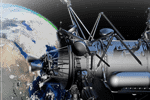Launching a spacecraft involves a highly complex and coordinated effort, requiring a specialized team known as the launch crew. These professionals are responsible for ensuring that every aspect of the launch goes smoothly, from pre-launch preparations to post-launch monitoring. Here’s an overview of the training and skills required for launch crew members:
1. Educational background
- Engineering degrees: Most launch crew members have degrees in aerospace, mechanical, electrical, or systems engineering. Advanced degrees (Master’s or Ph.D.) are often preferred for specialized roles.
- Physics and computer science: Strong backgrounds in physics and computer science are also common, providing the foundational knowledge necessary for understanding the principles of rocket science and the operation of complex systems.
2. Technical skills
- Systems engineering: Understanding how various subsystems of the rocket interact and function together.
- Propulsion systems: Knowledge of rocket engines, including liquid and solid propellants, and the principles of thrust and propulsion.
- Avionics: Expertise in the electronic systems used on the launch vehicle, including navigation, control, and communication systems.
- Software proficiency: Ability to use simulation software and control systems for launch operations and troubleshooting.
3. Operational Training
- Simulations and drills: Extensive training through simulations and drills to prepare for all possible scenarios during the launch.
- Launch procedures: In-depth understanding of the step-by-step procedures for launch, including countdown protocols, fueling operations, and emergency procedures.
- Mission-specific training: Familiarity with the specifics of the particular mission, including the payload, destination, and any unique aspects of the launch vehicle.
4. Physical and psychological preparedness
- Stress management: Ability to perform under extreme stress and remain calm during critical phases of the launch.
- Attention to detail: Precision and attention to detail are crucial to avoid mistakes that could jeopardize the mission.
- Team coordination: Strong teamwork and communication skills to coordinate with various teams and departments involved in the launch process.
5. Certifications and continued education
- Professional certifications: Certifications in areas such as project management (PMP) and systems engineering (INCOSE) can be beneficial.
- Continued education: Keeping up with the latest advancements in aerospace technology and launch systems through continuous learning and professional development.
6. Specialized roles and their requirements
- Launch director: Overseeing the entire launch operation, requiring extensive experience and leadership skills.
- Flight dynamics officer (FDO): Monitoring the trajectory and ensuring the vehicle stays on its planned path, requiring a deep understanding of orbital mechanics.
- Range safety officer (RSO): Responsible for ensuring the safety of the launch range and the public, including the authority to abort the mission if necessary.
- Ground systems engineer: Managing the ground support equipment and systems that are critical for launch operations.
- Telemetry and communications specialist: Monitoring and analyzing the data transmitted from the vehicle, ensuring clear communication channels are maintained.
The training and skills required for launch crews are rigorous and multifaceted, reflecting the complexity and precision needed for successful space missions. By combining technical expertise, operational readiness, and strong teamwork, these professionals play a crucial role in the advancement of space exploration and technology. Continuous training and adaptation to new technologies and methodologies ensure that launch crews remain at the forefront of this challenging and dynamic field.















